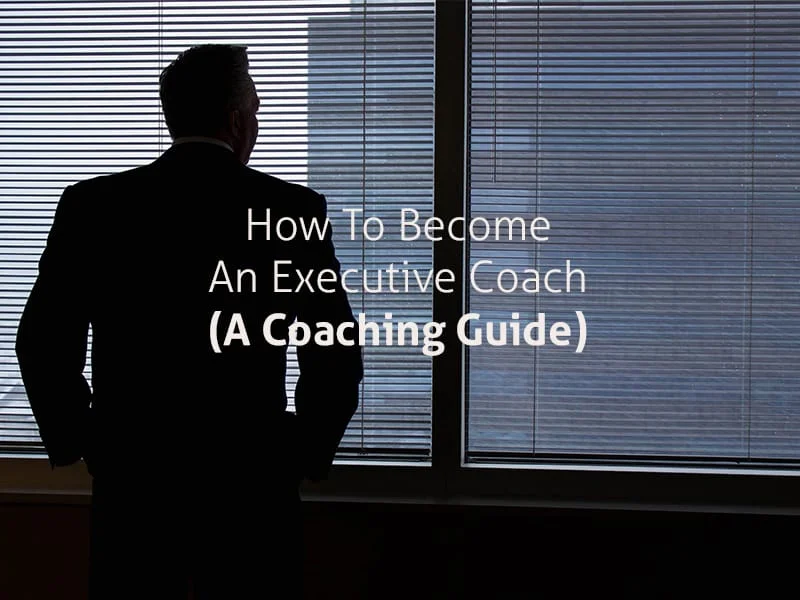If an organisation is thought of as a functioning machine, then its employees are the cogs that breathe life into this mechanism. And, as is with every machine, these gears need to be properly maintained and well-oiled at all times.
While regular servicing and greasing is enough to make sure that physical machines are as good as new, the same can’t be said for an organisation.
In their case, the fuel that drives the organisation’s efforts comes from the generation of ideas, goals, and the development of a great working environment that will do wonders when it comes to improving productivity in the workplace.
However, trying to generate this fuel by ensuring the availability of all these three factors is easier said than done. After all, at the end of the day a machine is just built for one purpose – humans are slightly more complex creatures.
So, if it seems that the organisation is stuck in a rut and not able to progress no matter how hard they try, then what is the solution to this debilitating problem? This is where your services as an executive coach can prove to be a massive help for these stagnating businesses.
Now, before we get into the thick of this topic and answer the pressing question of how to become an executive coach, there’s an elephant in the room that needs to be addressed.
In Brief : How To Become An Coach (A Coaching Guide)
Why Do People Go For The Services Of An Executive Coach?
- Attaining honest feedback – Executive coaching provides unbiased perspectives to help high-level executives receive candid feedback; cost varies.
- Augmenting their decision-making skills – Ongoing interactions with an executive coach enhance decision-making, crucial for career growth; cost varies.
- Finding ways to improve productivity – Executive coaches identify and address obstacles hindering productivity; cost varies.
What Are The Ideal Skills Of An Executive Coach?
- Communication and patience – Essential skills for an executive coach include patient listening and effective communication, crucial for building credibility; cost varies based on the coach’s fees.
- A penchant for analysis – Beyond communication, successful coaching requires keen analysis skills to understand the root causes of clients’ problems, ensuring valuable advice; cost varies based on the coach’s fees.
- Provide much-needed motivation – Executive coaches play a vital role in identifying and addressing factors affecting an executive’s motivation, contributing to a positive coaching experience; cost varies based on the coach’s fees.
What is an executive coach?

When we talk about executive coaching, we refer to an individual who is experienced when it comes to evaluating the work prowess of an individual or collective and analysing this information from an objective point of view.
What does an executive coach do?
The main aim of executive coaching is to figure out the best course of action that can be taken to fix the debilitating problems that might be affecting the work being done by either an employee or the organisation as a whole.
The advice that you provide is meant to improve one’s ability to work in a professional capacity by eliminating any wasteful or unproductive actions and suggesting a different course of action that can be taken if the individual or organisation feels that their work is not up to par.
How do people become an executive coach?
So, the good news (or bad news, based on your viewpoint) is that there are virtually no restrictions that are stopping you from being an executive coach. Anybody who feels like they have the insights required to direct the careers of other individuals can market themselves in this particular line of coaching.
However, it goes without saying that attaining a qualification will certainly go a long way when it comes to ensuring your success in this particular field. While not a necessary aspect of coaching, it still doesn’t hurt to improve your chances by attaining this certification.
Various coaching certifications that are provided by organisations like INSEAD and the International Coach Federation (ICF) will help you take the steps required to become a certified executive coach, which will definitely add a much-needed level of credibility to the services you provide.
Why do people go for the services of an executive coach?
Typically, clients of an executive coach mainly fall into the category of those people who have a powerful and authoritative position in the organisation. Of course, we’re not saying that executive coaches will deal solely with these people, but it’s an observation that should nevertheless be stated.
There are multiple reasons why executive coaching is in high demand, and we’re sharing some of the more prominent causes for this coaching requirement.
1. Attaining honest feedback: One of the significant problems that people face when it comes to the realm of business is that it’s just impossible for them to get the feedback they want for the ideas they have.
This is mainly due to the high position they might hold in the organisation, which indirectly means that other employees might feel intimidated, and won’t provide their superior with the honest feedback they want.
This mandates the need for an external individual, who can listen to the ideas these people have from an unbiased point of view and say it to their face whether the idea they have is worth a dime.
Without the fear of disappointing their superior (or attracting any other negative views and opinions), your skills as an executive coach will help these people attain the feedback they want without any external factors influencing the advice being given.
2. Augmenting their decision-making skills: By regularly interacting with an executive coach over a prolonged period of time, a significant benefit that will be experienced by individuals is that they will see a marked improvement in their decision-making prowess.
This means that you and your skills as a coach will prove to be imperative for an employee who feels that the decisions they make are not up-to-par, and need to be improved from the ground up.
By continually engaging in feedback sessions with you over a prolonged period of time, your client will attain the confidence required to make important decisions without second-guessing themselves.
Improving this skill is essential, especially if your client wants to improve their prospects of promotion and grow in their career, which – let’s face it – is a lingering need for any employee in the business sector.
3. Finding ways to improve productivity: One of the major obstacles that are experienced by an individual during their working period involves a blockage of sorts that prevents you from maximising productivity.
This blockage can arise for multiple reasons, ranging from inefficient organisation processes to mental blocks that end up impeding the potential level of productivity in the company to a large extent.
So, any executive who is experiencing this problem of less-than-ideal productivity levels will obviously try and find a way to make sure that this issue doesn’t get out of hand. This is where your services as an executive coach come into play.
By listening to your client and figuring out the cause behind this decreased level of productivity, your analytical skill will help you figure out the best course of action that needs to be taken to mitigate this problem by a large extent.
What are the ideal skills of an executive coach?

If you’re serious about going ahead with the idea of being an executive
coach, then bear in mind that there are a number of critical areas that need to be developed before you can be assured regarding how sound your advice will actually be.
Your client will not be satisfied with the services that you provide if you aren’t 100% sure that the following skills haven’t been developed properly.
1. Communication and patience: An essential skill that any coach needs to develop (regarding of which capacity they might be working in) is the capacity to listen and understand everything that their client is talking about.
Being a patient listener is a pretty massive perk in itself outside of one’s professional life, but when it comes to the act of coaching, communication is a crucial aspect of your service that will add a touch of credibility to your advice.
After all, the people who choose to avail your service are astute professionals who will notice if your communications skills aren’t excellent, let alone up to par. And without adequate communication skills, you won’t be able to make an accurate judgment for your client either.
This will lead to a situation where you just won’t be able to formulate the best course of action that your client can take to fix their problems. After all, a lack of communication will mean that you will always have a sense of doubt when it comes to what your client’s problem is, to begin with.
2. A penchant for analysis: Simply having excellent communication skills is not good enough to provide your client with a satisfactory service – after all, it’s not like your client is paying you hard-earned money just so that he can talk to someone who’ll listen to their problems without providing their input.
So, make sure that you are keenly listening to what your client wants to convey, and are subsequently picking up on any telltale signs that might help you understand exactly what the source of your client’s problem is.
We say this because the primary reason why your client is choosing to avail your services in the first place is due to your inherent unbiasedness when it comes to stating the problems affecting your client’s work.
However, this is not the only reason that will sell your client on your services – if the advice you provide is not up to the mark, or has no value for your client, then it goes without saying that your career in the realm of executive coaching will witness a premature end.
3. Provide much-needed motivation: It must be said that one of the primary reasons why any executive might feel that their professional performance is taking a noticeable hit is because they’ve completely lost the drive to work to the best of their ability.
In layman’s terms, what we’re trying to say is that they’ve lost a significant component of a successful professional lifestyle – motivation. Without this key ingredient, it goes without saying that you simply won’t be able to perform to the best of their ability.
So, make sure that you can monitor the development of your client and identify the possible reasons that might be leading to this situation of not feeling motivated with the work at hand. Only by doing so will you be able to suggest the measures that can be taken to increase your client’s level of motivation.
By doing so, you will be able to ensure that your client enjoys a positive experience by availing your executive coaching services, and will ultimately guarantee your success in this career path – after all, word-of-mouth is a powerful advertising tool indeed.
What’s the difference between an executive coach and a career counsellor?
At a glance, there are certain aspects regarding both these coaching paths that might seem similar. Both coaches perform purely in a professional capacity, with the aim of directing a person in their career.
However, this is where the similarities end. The main aim of a career coach is to direct your career towards a path that will end up being the most rewarding in the long term, and help you take the steps required to reach this goal.
While an executive coach also works along the same lines, it also covers various other areas of interest as well. Everything from leadership skills, to better decision-making, to even managing key relationships – all of this is developed through the act of executive coaching.
Frequently Asked Questions (FAQs)
What is an executive coach?
Executive coaches are an integral part of business success. They are elite, top-level professionals that have the ability to be unbiased in their information. They specialize in assessing your strengths and weaknesses, then they can provide you with personalized feedback and guidance to help you achieve your goals.
Executive coaches work with people who are leaders in their field, such as executives and managers. These professionals help them identify their potential by developing personal leadership skills and boosting their confidence to give them a competitive edge.
An executive coach can also be known as a corporate coach or executive advisor- all of which serve the same purpose: to help their client identify and reach his or her goals while giving constructive feedback and advice on how the client can make the necessary changes for success.
What does an executive coach do?
An Executive Coach is a professional who helps executives and managers to improve their performance by focusing on their behavioral, situational, and strategic performance, as well as by dealing with their personal developmental needs. These coaches may also help executives to grow personally and to develop their leadership skills. The coach and client may meet a couple of times a month, depending on the situation and continued need. The executive coach usually meets with their client at the client’s work or office, although some will meet at the coach’s office or a neutral site.
Why do people hire an executive coach?
Executive or professional coaching has been a useful tool for assisting individuals in the corporate world to become more effective leaders, managers, and people in general. This could be due to the fact that a lot of pressures are now on the shoulders of people who hold high-up positions. In fact, at times, they fail to cope with these pressures, which affects the organization they are in charge of and the people who work for them.
How to become an executive coach?
To become an executive coach, you must first be an experienced coach, and an experienced coach is one who has worked as an executive for at least 3 years, has a good understanding of the corporate environment, and can work with people. If you are still new in the field of coaching, then you have to study more. Ask questions, read books, attend seminars, and meet a lot of people and learn from them. When you feel that you have a good understanding of the subject, then act as a consultant to some big corporate houses and get some hands-on experience.




ABOUT SAI BLACKBYRN
I’m Sai Blackbyrn, better known as “The Coach’s Mentor.” I help Coaches like you establish their business online. My system is simple: close more clients at higher fees. You can take advantage of technology, and use it as a catalyst to grow your coaching business in a matter of weeks; not months, not years. It’s easier than you think.
AS SEEN ON
0 Comment